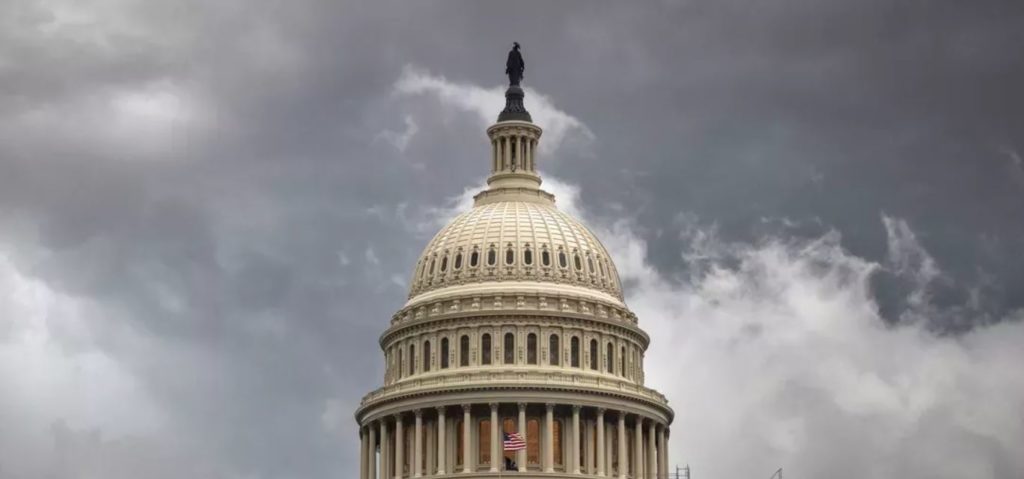
François Christen
Chief Economist
Fitch's surprise decision to cut US credit rating and robust indicators trigger bond market correction.
Original article published in French on agefi.com

The inversion of the dollar yield curve has faded as a result of the tensions affecting long-term bonds. The yield on the 10-year T-Note is close to 4.1%, while the 30-year Long Bond, which has lost its benchmark status, is now around 4.3%. Short-term bonds, on the other hand, are showing stable or even slightly lower yields.
This « de-inversion » in the structure of dollar-denominated interest rates echoes the downgrading of the USA by a credit risk rating agency and the firmness of several economic indicators. Twelve years after Standard & Poor’s, Fitch has downgraded US Treasury bonds from AAA to AA+. The timing of this decision is surprising, but it is amply justified by the structural deterioration in public finances observed over the past 20 years. No clear-sighted investor needed Fitch to point out that the quality of US debt has deteriorated under the weight of accumulated deficits run by both Democrats and Republicans.
Fitch’s decision is more of a symbol than a revelation likely to shake the financial markets or justify an increased risk premium on US debt. However, Fitch’s announcement may have played a marginal role in the upturn in long-term yields seen over the past week. The recent tensions are also the result of a reassessment of recession risks in the light of numerous indicators that seem to validate the soft landing scenario.
The employment report published last Friday showed the creation of 187,000 jobs in July, a level « neither too hot nor too cold » that Goldilocks would not have denied. The unemployment rate dipped to 3.5%, but annual growth in average hourly earnings was moderate at 4.4%. The decline in job openings (9.6 million in July) reflects a slight easing, but initial jobless claims are not taking off (227,000 according to the latest weekly figures). The ISM surveys highlight a timid improvement in business activity in the manufacturing sector, but the gauge still reflects a contraction in activity (46.4 in July after 46.0 in June). While still expanding, service activities are showing signs of softening (52.7 after 53.9).
European markets were not spared by the « bear steepening » phenomenon observed in the USA. The yield on the 10-year German Bund has risen to around 2.6%, while the yield on the 2-year Schatz has fallen back below 3%. However, the structure of euro interest rates remains so inverted that duration risk is not remunerated at all.
Long-term British Gilts are also posting rising yields. Unsurprisingly, the Bank of England raised its base rate by a quarter of a percent to 5.25%. The statement foreshadows further interest rate hikes to stem the risks of upwardly « biased » inflation. The upturn in wage inflation, more pronounced than elsewhere in the West, raises fears of a persistent acceleration, which could lead the central bank to raise its key interest rates to
around 6% by the end of the year.
Tensions are less pronounced on the Swiss franc capital market. Yields on Swiss government bonds are
still around 1%, well below the key interest rate of 1.75%. With inflation easing to 1.6% in July, the SNB may
not tighten its monetary policy if the franc does not weaken.










